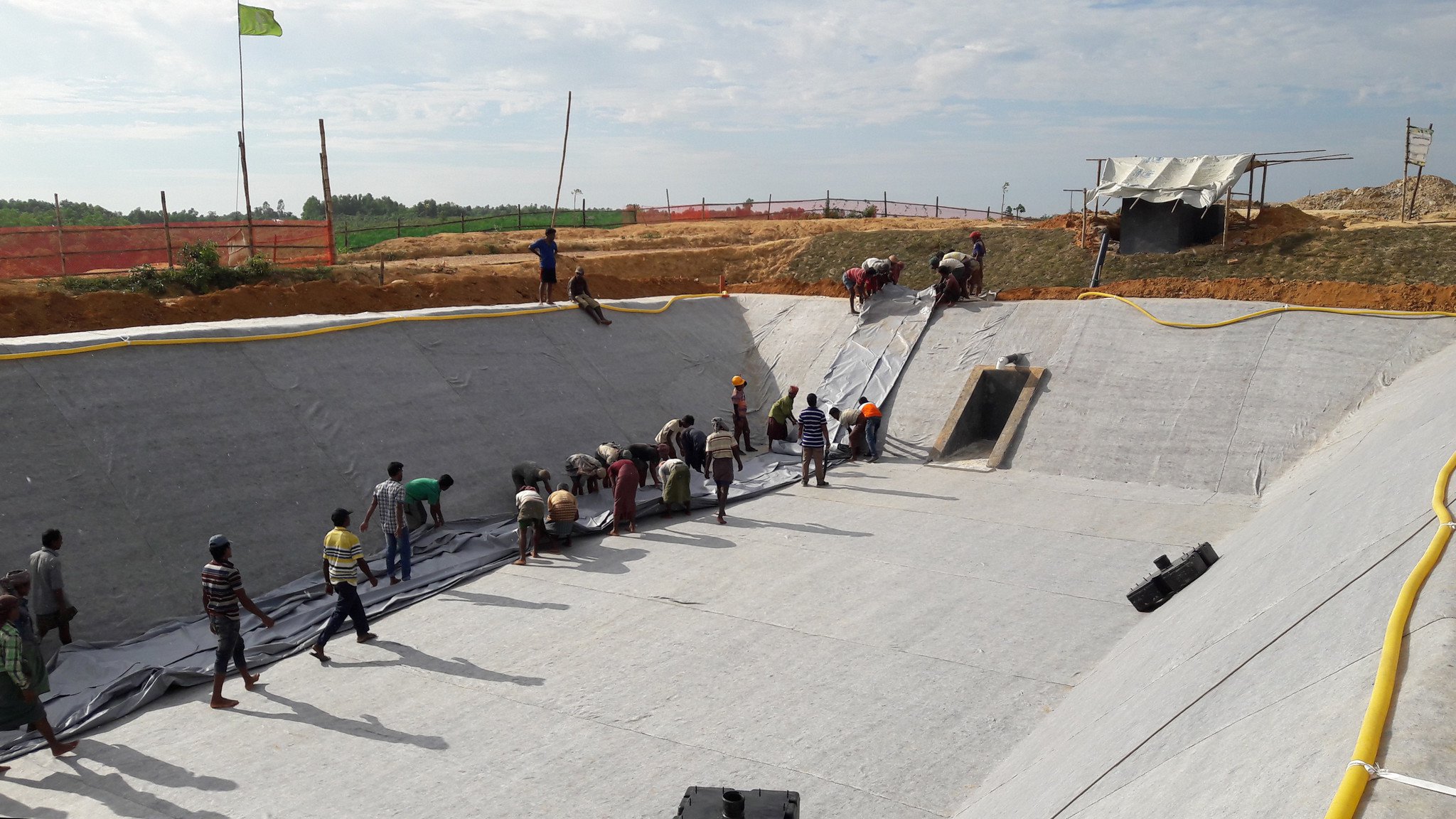Basic services including clean water, proper toilets, and a place to wash your hands are more important than ever in the struggle against COVID-19.
Clean water, proper disposal of waste, and good hygiene practices are essential to fighting poverty and preventing the outbreak of diseases like COVID-19. But a shockingly large proportion of the world lacks these on a regular basis. And when a disaster strikes or a disease breaks out—like the current coronavirus pandemic—the results are deadly. That’s why Oxfam helps communities advocate for better services and responds to emergencies with a special focus on water, sanitation, and hygiene.
Clean water
Clean water is a basic human right, but roughly 72,000 children under five die every year from illnesses linked to water and sanitation access problems, according to the UN agency UNICEF. In emergencies, safe water is even more crucial, which is why Oxfam helps refugees and displaced people repair water systems and wells, delivers water by truck, and installs water tanks. After providing clean water to thousands of people displaced by Cylone Idai in Mozambique in 2019, for example, Oxfam was still finding isolated and inaccessible villages with people trapped by floodwaters a month later. Our partners distributed LifeSaver cubes that purify water with a small hand pump as a temporary solution.
Right now, Oxfam and our local partners are struggling to find clean water for densely populated areas where people may not have the option of social distancing. In camps for people displaced by conflict in northern Burkina Faso, Oxfam partner the Association of Environmental Management and Development (AGED) is promoting good hygiene, working to find clean water and soap, and raising awareness of the disease to help people stay healthy. They are urgently seeking funds to build more than 100 water points to assist 287,000 people.
Sanitation
Proper waste management is crucial in all communities to protect the health of people and the environment, yet two billion people still don’t have toilets or latrines, according to the UN World Health Organization. Oxfam is working with local organizations and governments to seek affordable, sustainable sanitation, and helps people displaced by emergencies with temporary solutions like emergency latrines and sewage management. When setting up emergency latrines to help people displaced by conflict and disaster, we ensure they are safe and properly lit to reduce the vulnerability of women and girls.

In Cox’s Bazaar, Bangladesh, for example, Oxfam engineers and Rohingya refugees built a sewage treatment system that handles the waste of 150,000 Rohingya people who live in refugee camps there. As this refugee camp is now at risk of an outbreak of COVID-19, proper disposal of waste will help safeguard clean water people will need for washing at this crucial time.
Hygiene
Helping people keep clean, with safe water and soap to practice good hygiene, fights poverty: It helps poor households avoid preventable diseases and medical expenses. UNICEF estimates 40 percent of the world’s population (three billion people), do not have a handwashing facility with water and soap at home.
In addition to promoting good hygiene in schools and communities, Oxfam distributes hygiene kits to people affected by disasters, which can include a clean bucket (with a cover) to store water, as well as soap, toothbrushes, shampoo, sanitary pads, diapers, and laundry soap. In late 2019 and early 2020, Oxfam is planning to distribute roughly 5,700 hygiene kits to families in five areas of Iraq to help people displaced by fighting to avoid disease.

Promoting good hygiene will be an essential method to break the chain of transmission of COVID-19, as it proved to be in the Ebola epidemic in 2014-2015 in West Africa.
“Putting handwashing buckets with soap at each household and doing massive but very targeted house-to-house public health messaging and hygiene were a game-changer,” says Abdullah “Duio” Ampilan, who worked for Oxfam in Liberia and Sierra Leone during the Ebola outbreak.

Ampilan also cited the essential role of local people in reducing fear and suspicion, building confidence in institutions like health centers set up to treat sick people, and reducing the stigma of families affected by Ebola.
“Insights from local partners—especially on knowledge of local contexts, culture, and behavior—will be invaluable in these times,” he says. Women, who Ampilan says already carry out most of the village-level health work, need to be involved as leaders who will shape the COVID-19 response for their communities.
